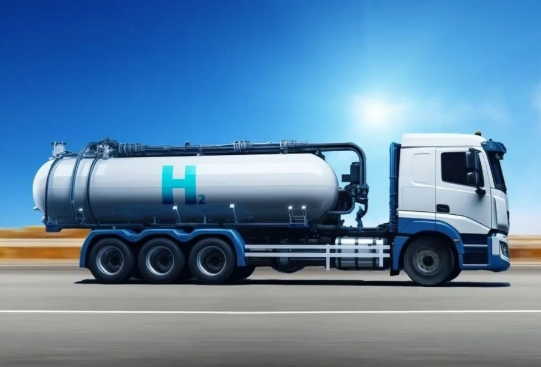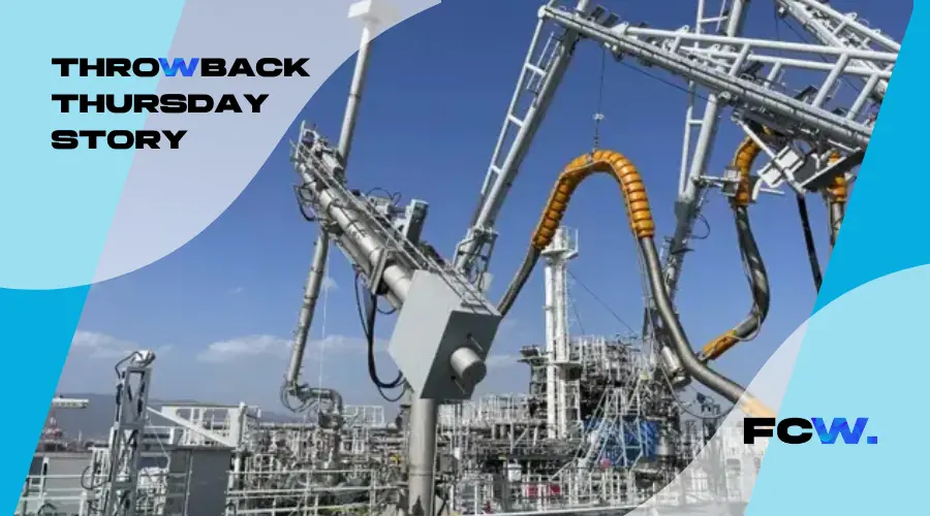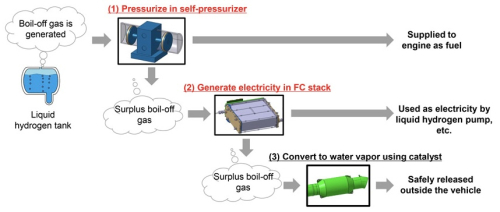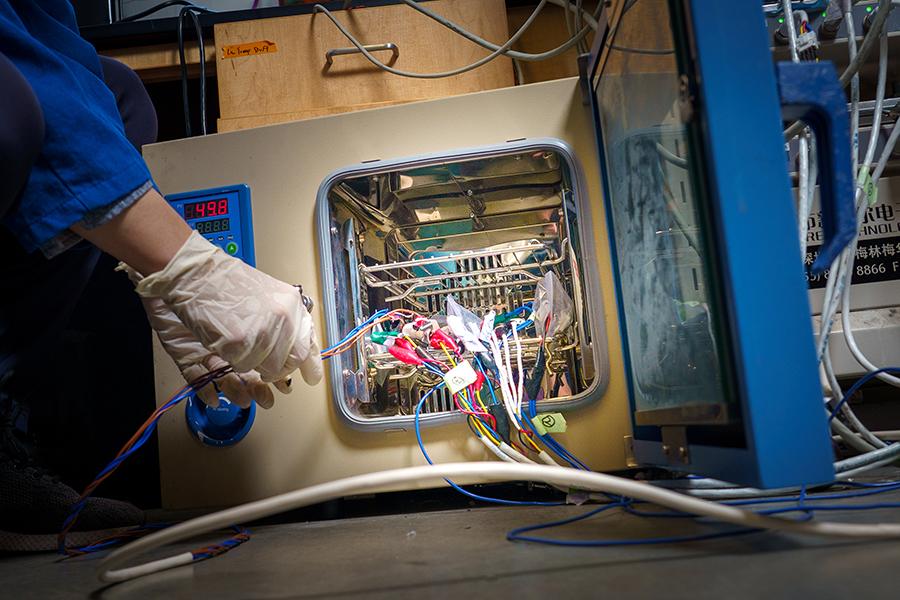
As part of their research into next-generation battery technology, scientists at University of California, San Diego are exploring designs that can function at extreme temperatures, and they're beginning to make some significant inroads. In their latest study, the team demonstrates a lithium battery that can not only operate at freezing cold and scorching hot temperatures, but may store double the energy of current devices and be friendlier to the environment while it's at it.
Last year, we looked at an interesting breakthrough from the same group of researchers, which stemmed from an ability to manipulate the movement of ions in a lithium battery. This is facilitated by a reinvented electrolyte solution, which ferries the lithium ions between a battery's two electrodes, the cathode and anode.
The team found success with an electrolyte that formed weaker bonds with the lithium ions, which allowed for a more uniform distribution of them during charging. This weak-binding electrolyte was integrated into an experimental lithium battery with a high-density metal anode and a sulfur-based cathode that was able to operate at sub-zero temperatures while retaining much of its capacity.
By continuing to experiment with its electrolyte recipe, the scientists have now developed a version that operates at the other end of the spectrum as well. The new electrolyte features lithium salt and dibutyl ether, a chemical compound with a boiling point of 141 °C (286 °F), enabling the electrolyte to remain liquid at high temperature.
In proof-of-concept experiments with this electrolyte, the batteries were able to retain 87.5 percent of their capacity at -40 °C (-40 °F) and 115.9 percent of their capacity at 50 °C (122 °)F. They also demonstrated high Coulombic efficiencies of above 98 percent at these temperatures, which relates to their ability to handle more charge cycles before the end of the lives.
A battery with an ability to function at cold temperatures could make for electric vehicles with greater ranges in cold climates. Conversely, a battery that can safely operate at higher temperatures could eliminate the need for cooling systems to prevent overheating, in addition to other advantages.
“You need high temperature operation in areas where the ambient temperature can reach the triple digits and the roads get even hotter," explained study author Zheng Chen. "In electric vehicles, the battery packs are typically under the floor, close to these hot roads. Also, batteries warm up just from having a current run through during operation. If the batteries cannot tolerate this warmup at high temperature, their performance will quickly degrade.”
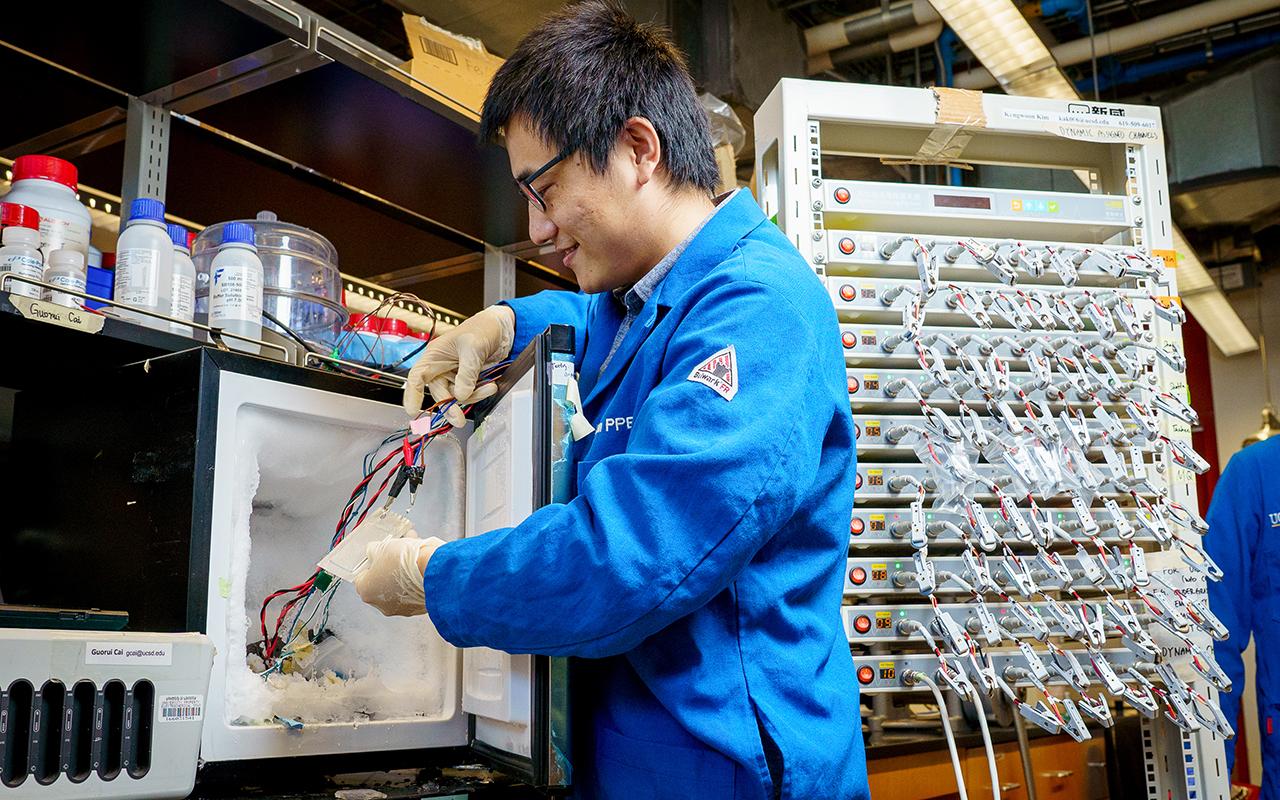
Study first author Guorui Cai prepares to test battery technology at sub-zero temperaturesDavid Baillot/UC San Diego Jacobs School of Engineering
One again, the team's electrolyte is compatible with high-density lithium metal anodes and cathodes made from sulfur. This type of lithium-sulfur battery promises to store as much as double the energy of today's lithium batteries, which could mean electric cars with double the range. Additionally, sulfur is more abundant and less problematic to source than the relatively rare and expensive metal cobalt, which is used in today's lithium battery cathodes, lessening the strain on the environment.
The team also says their design offers a much longer cycle life than current lithium sulfur batteries. It is now shifting its focus to extending this cycle life even further, enabling the battery to operate at even higher temperatures, and then scaling the technology up.
